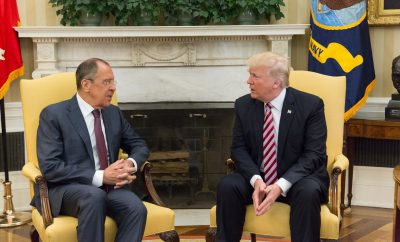 Image courtesy of [NASA Goddard Space Flight Center via Flickr]
Image courtesy of [NASA Goddard Space Flight Center via Flickr]
News
Whether You Like it or Not, the Iran Deal is Happening
Senator Barbra Mikulski of Maryland came out in favor of the Iran deal Wednesday morning, and with that the deal’s opponents will no longer be able to stop it from going forward. With Mikulski’s support, the deal to scale back the Iranian nuclear program in exchange for the removal of U.S. sanctions is essentially final.
First things first: the Iran deal was already going to happen. But what was at stake prior to Mikulski’s announcement was the deal’s opponents’ ability to pass a resolution disapproving it–which would prevent the president from lifting sanctions, but would still not stop the entire agreement. Because the negotiations involved several other countries, who have already promised to lift their sanctions, many aspects of the deal would have gone forward regardless of what Congress does.
Now that it is impossible for Congress to override an Obama veto, there is nothing stopping the deal. A veto override would require a two-thirds majority from both chambers of Congress–67 in the Senate and 290 in the House of Representatives. Senator Mikulski is now the 34th senator to support the deal, creating enough support to maintain a veto from the president. Traditionally, Congress would not have the power to stop an agreement like this, but it passed a bill in May that mandated a 60-day review period during which Congress could stop sanctions relief with a disapproval resolution.
Despite the clear path to the deal, there remains some politics to play. The fact that an Obama veto can no longer be overturned frees up several Congressional Democrats to oppose the deal for purely political reasons, as their opposition will not impact the deal. So far only two leading Democrats, Senators Schumer and Menendez, have come out against the deal. But now that the bulk of the pressure is off other Democrats to fall in line with the President, others may begin to oppose the deal.
On the other side of the aisle, Republicans may still decide to hold a vote on a disapproval resolution, which while symbolic, would end up getting vetoed. While Obama can stop any action by Congress, having to use his veto would be slightly embarrassing and politically damaging. The Iran deal will likely remain fodder for Republicans in the upcoming election and as a counterpoint to the White House’s foreign policy agenda going forward.
The deal has already prompted a response from several presidential candidates:
Partisan minority should not block bipartisan effort to stop bad deal that will fund mullahs, destabilize region, & pave Iran’s path to bomb
— Jeb Bush (@JebBush) September 2, 2015
When I’m President, we won’t just reverse President Obama’s dangerous Iran deal. We will increase sanctions on Iran.
— Marco Rubio (@marcorubio) September 2, 2015
Great news that the Iran Deal has enough votes; as POTUS, I would aggressively enforce it and counter Iran’s other malicious activities. -H
— Hillary Clinton (@HillaryClinton) September 3, 2015
The Iran deal was already a hot topic in the upcoming election, but now that it is moving forward the debate will likely intensify. Beyond the election, the deal will be important for Americans politics–especially if Congressional Republicans go forward with their plan to pass a resolution of disapproval, which they have until September 17 to do. While action from Congress will likely not effect the future of the deal, it could cost the President some influence.








Comments